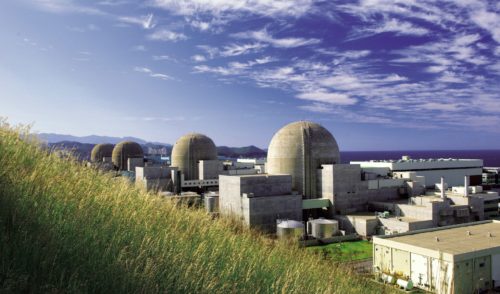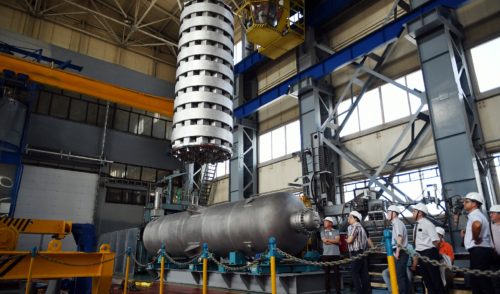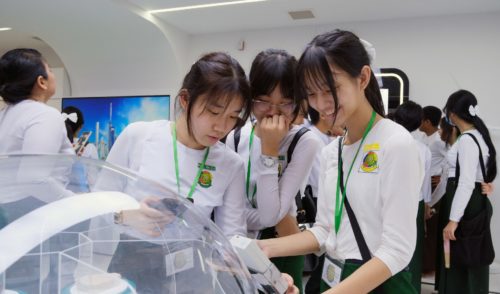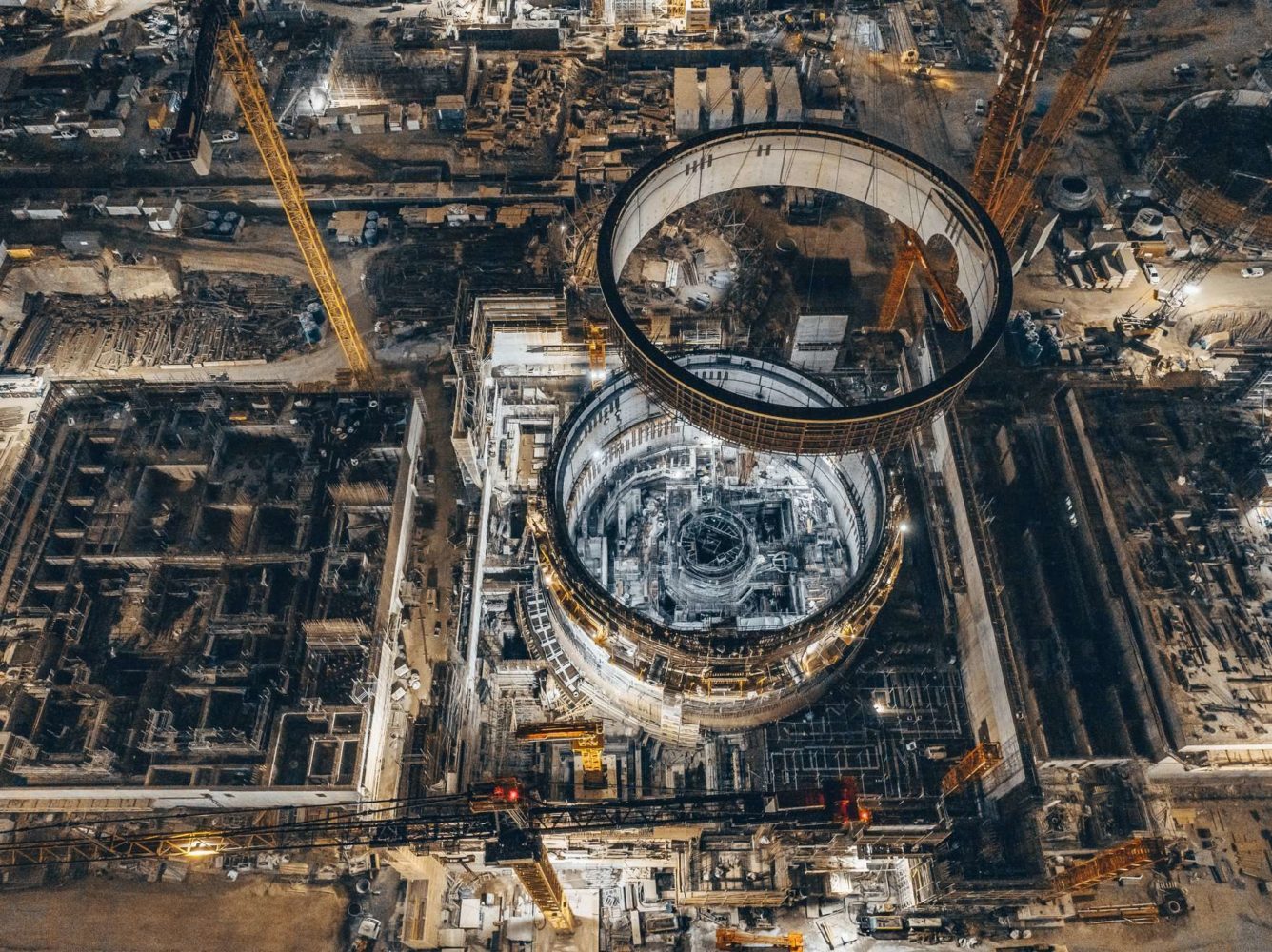
Gigawatts of Nuclear Power
back to contentsTurkey plans to add 7.2 GW of generation capacity to its energy mix by 2035. It is not surprising that the Akkuyu NPP is in the focus of attention of the country’s top officials. In early October, Turkish Minister of Energy and Natural Resources Alparslan Bayraktar visited the nuclear plant site.
Alparslan Bayraktar and Rosatom Director General Alexey Likhachev inspected the site and held a joint meeting afterwards. Alexey Likhachev met with representatives of the contractors carrying out construction and installation works on the Akkuyu NPP site.
Commenting on the progress in building Turkey’s first nuclear power plant, he noted the scale and intensity of construction works. “This year, we are finishing general construction works and plan to proceed to commissioning of the first unit. We expect that the reactor will go critical and generate the first kilowatt-hours of electricity next year,” Alexey Likhachev said. The head of Rosatom also noted the contribution made by the Russian nuclear corporation to the infrastructure of Akkuyu by building new residential neighborhoods and advanced road interchanges and fostering education, agriculture, catering and other businesses.
Alparslan Bayraktar stressed the importance of the Akkuyu NPP project for the country’s energy sector in his video address to the 67th session of the IAEA General Conference held in September. “Our number one priority in the energy sector is to develop a sustainable energy policy. Nuclear energy will play a vital role in helping our country achieve carbon neutrality by 2053,” the minister said. He recalled that Turkey’s National Energy Plan provided for 7.2 GW of capacity additions to its energy mix by 2035 and over 20 GW of new nuclear power capacity to be built by the end of 2050. Minister Bayraktar also said that Turkey was also closely following the developments in small modular reactor technology and wanted to include it in its energy mix.
Rosatom is ready to meet Turkey’s needs for new nuclear reactors and enter the Turkish market with other nuclear products, said Anton Dedusenko, Deputy Chairman of the Board at Akkuyu Nuclear, in an interview to the Sabah newspaper. According to him, Rosatom’s offering goes far beyond the construction of nuclear power plants and includes energy storage systems, innovative composite materials, digital solutions, medical and healthcare products.
“We owe the Akkuyu project the partnerships established with many of our Turkish suppliers. Over many years we have been working in the country, we have learned the potential needs and demands in the Turkish market. With the Akkuyu project, we draw practicable roadmaps that will serve as a reference for us and our Turkish partners to follow up on our flagship project in the country and continue contacts in new areas,” Anton Dedusenko said.
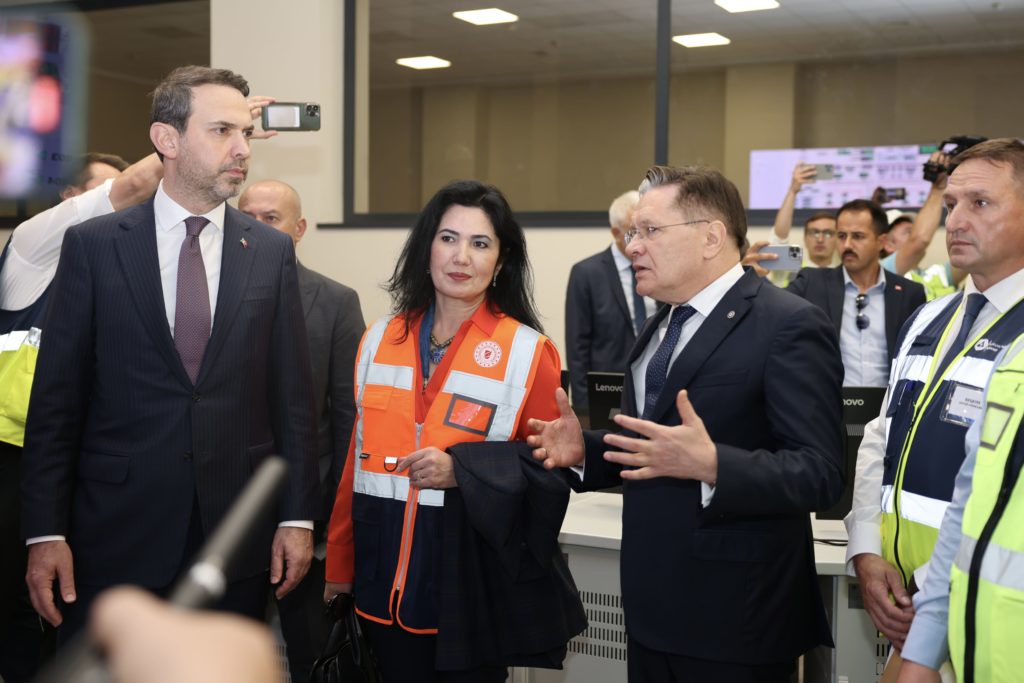
The Akkuyu NPP construction is in full swing as works are simultaneously underway at all four reactor units of the plant. A core catcher was installed at Akkuyu Unit 4 in mid-October. It is a steel cone-shaped container with a diameter of 5.8 meters, designed to safely retain corium fragments and prevent their release into the environment in the event of an emergency.
Concreting of the turbine foundation was completed in the turbine hall of Unit 2 in mid-September. The foundation under the turbine is a complex structure capable of taking and evenly distributing the loads generated during the turbine operation. A vibration isolation system, an important part of which are spring blocks, was installed during the foundation construction. They are designed to separate the foundation slabs of the turbine and nuclear islands to improve seismic resistance and minimize vibrations while the turbine is in operation.
In late September, a reactor pressure vessel for Akkuyu Unit 3 was shipped from the production site of Rosatom’s power engineering division in Volgodonsk (Russia). The RPV was delivered by a special truck to the plant’s pier and loaded onto a barge. It will have to travel 3,000 kilometers to the destination point. This has been the fifth reactor shipped from Rosatom’s factory this year. With this shipment, the Russian nuclear industry set a new record by the number of reactors manufactured within a year.
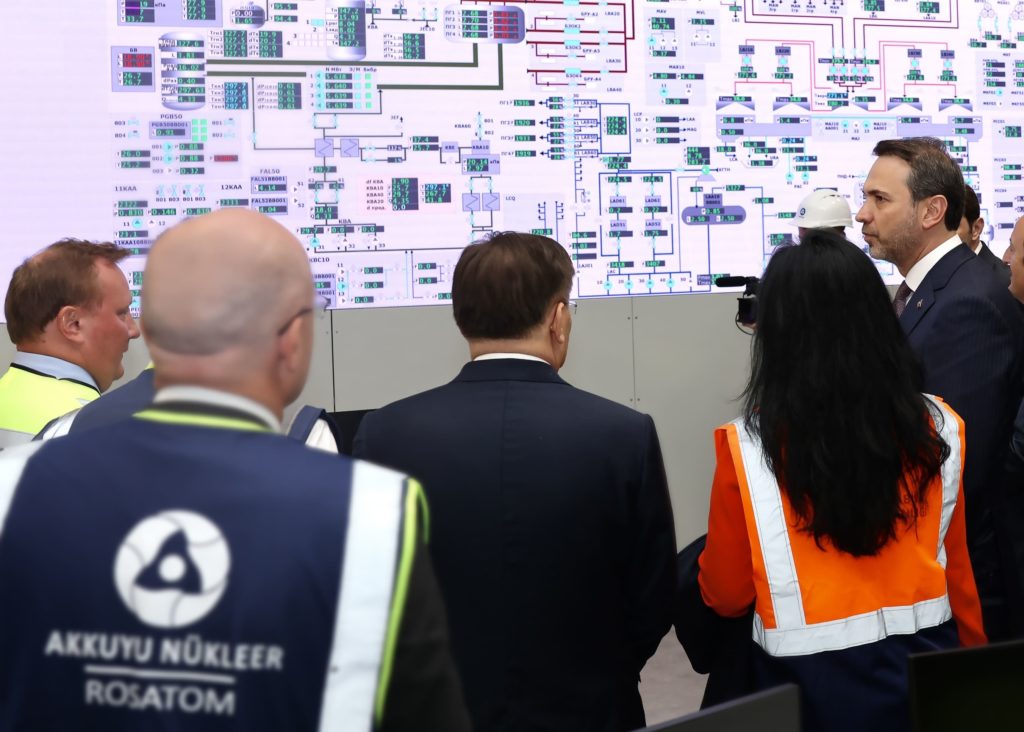
Turkish and Russian nuclear engineers work in close contact with each other. In early October, the Global Nuclear Safety and Security Institute of Rosatom’s Technical Academy completed another set of training courses for the Akkuyu security personnel. A total of 56 nuclear plant employees took part in the training. The group included Russian and Turkish trainees, both frontline and managerial staff of the Akkuyu security service. They are trained step-by-step in accordance with a comprehensive training plan for nuclear security employees, which is intended to last until 2027.
In October, a delegation from Akkuyu visited the Kalinin Nuclear Power Plant in Russia to study the electricity selling practices. The representatives of the nuclear power plants had a meeting to discuss the operation, maintenance, power production forecasting and planning at a nuclear facility. The key topic was electricity sales matters, such as tariff rates, government regulation, sales market structure, methods and tools to improve sales efficiency in the wholesale market.
“We are glad to share our electricity and capacity selling experience and practices with our foreign colleagues. These include both business processes in the plant’s sales department and interfaces between the process control and commercial dispatching services,” said Sergey Molotov, Deputy Chief Engineer for Production, Maintenance and Quality at the Kalinin NPP.


